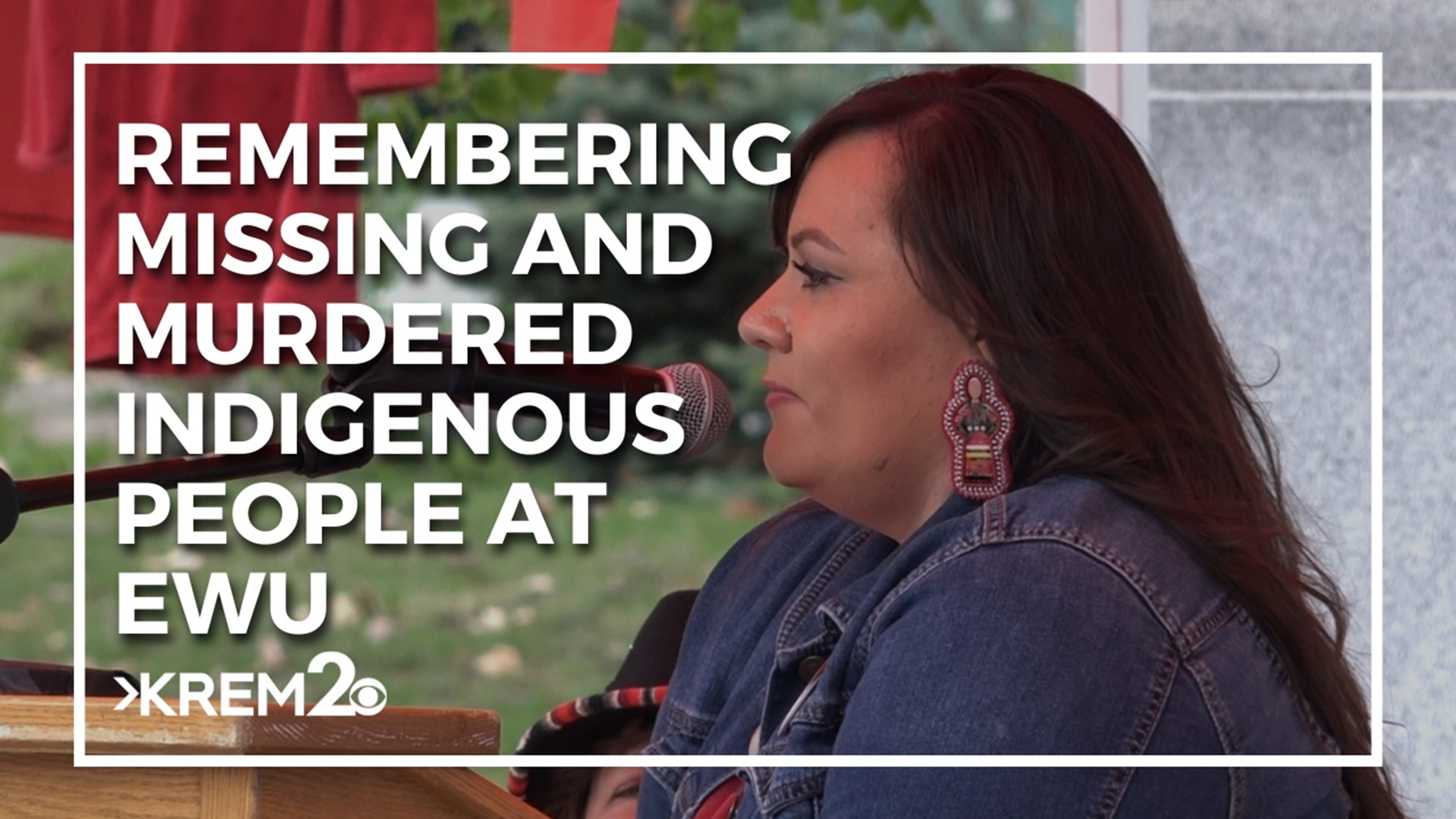CHENEY, Wash. — On Friday, May 5, Eastern Washington University's campus mall was the center of ceremony for the National Day of Awareness for Missing and Murdered Indigenous People.
Through art and personal stories, members of different northwest tribes reflected on the decades of loss.
"[Some] have never received justice, their cases have never been investigated," said Monica Tonasket, a Spokane Tribal Council member.
Patsy Whitefoot recalled days in a boarding school where she said she was mentally abused, was called names and 'indoctrinated' to give up her tribal beliefs for Christianity.
She said indigenous people carry that kind of trauma in their DNA. Whitefoot wondered as a high schooler if she'd live into her early 20s, as she watched many classmates die from alcohol abuse.
Idella Rattler-King shared the story of losing her sister, Josephine, in 2004. She believed "Joey" was killed by a domestic partner, though no charges have ever been filed.
"When I noticed there was no tape, there was no active investigation that was starting or would ever start for my sister, I had to switch it up in my mind," she said. "I knew if I went in there being a big sister, wanting to fight everybody, screaming and hollering, I wouldn't get my questions answered."
Spokane Tribal citizen Jeff Ferguson said during an event last year at Gonzaga, there were just over 100 names on the list of missing indigenous people in Washington state. At Friday's event, 143 names were read from that list.
"Those are our sisters, those are brothers," said Tonasket. "They deserve justice. Their families deserve closure."
The event was also a call to action.
Margo Hill, a former Spokane Tribal attorney, said there's hope in Washington.
Hill explained confusion over jurisdiction on tribal lands led to difficulties in investigating, charging, and prosecuting crimes. She called it the jurisdiction "checkerboard" of trust lands.
"In our office we got letters of declination where the US attorney declined to prosecute major violent crimes in our communities," Hill said. "They said, 'Oh it's not a good case' or 'You don't have good testimony' or 'The facts just aren't there.'"
Hill said the creation of an Indigenous Cold Case Task Force in Washington will make cases easier to keep track of and find answers and justice for.
"The legislation that's being passed for a cold case unit to investigate these crimes so we begin to stop the MMIW epidemic," she said. "We ask all of you -- if you see something, say something."
DOWNLOAD THE KREM SMARTPHONE APP
DOWNLOAD FOR IPHONE HERE | DOWNLOAD FOR ANDROID HERE
HOW TO ADD THE KREM+ APP TO YOUR STREAMING DEVICE
ROKU: Add the channel from the ROKU store or by searching for KREM in the Channel Store.
Fire TV: Search for "KREM" to find the free app to add to your account. Another option for Fire TV is to have the app delivered directly to your Fire TV through Amazon.
To report a typo or grammatical error, please email webspokane@krem.com.

